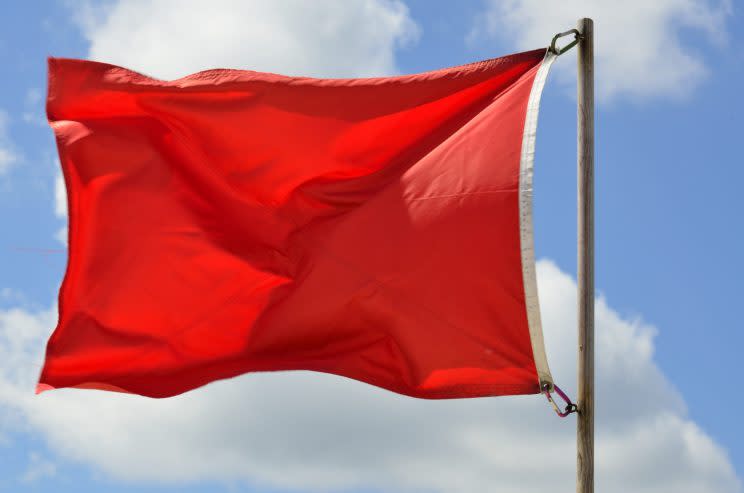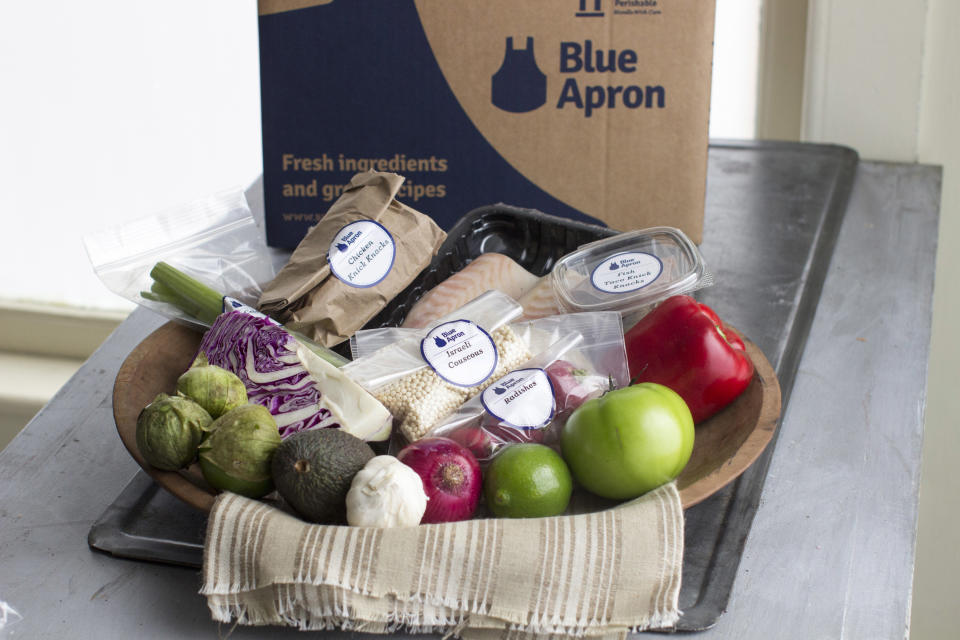Private companies ready for IPO just got a major warning

It may be time for all of these billion-dollar private companies to call their investment bankers so that they can fast-track their IPO.
“It’s not going to get much better than this,” said Kathy Smith of Renaissance Capital, manager of IPO-Focused ETFs (IPO, IPOS). “Even if you have to take a cut in pricing, private companies should go to the public markets and move on.”
For many entrepreneurs and early investors, the only thing delaying an IPO is the hope that the market will price for them a higher valuation. This means bigger profits when these investors cash out.
Smith told Yahoo Finance that Tuesday’s news of Blue Apron slashing its IPO pricing guidance is a red flag to private companies. The meal-kit company’s valuation was cut from $3.2 billion to $2 billion. Importantly, it is now worth less than the $2.2 billion valuation that was established after its latest funding round in 2015.
While some of this revision has been attributed to the evolving competitive landscape for food companies — don’t forget the pending Amazon (AMZN)-Whole Foods (WFM) deal — Smith says there are bigger forces also in play.
“Market dynamics are changing,” she said. “This should be a wake-up call to private companies that may be waiting for a better time to go public.”
Blue Apron is not alone in having to make this type of adjustment. Flash storage company Tintri, another venture-backed, high-growth company expected to debut on the public markets this week, is being valued of $380 million, which is half the level of its last financing round two years ago, when it was valued at $785 million.
“What are they waiting for?”
Private companies that have been holding off on an IPO include behemoths like Airbnb, whose mythical billion-dollar-plus valuation has earned it the title of “unicorn.” Smith says these companies should be going public.
“What are they waiting for?” she asks.
“Uber missed their window. And, by the way, if they were public, the governance never would have been what it is,” she said, referring to the series of scandals plaguing the company this year.

Already in 2017, the IPO market has raised more capital than in all of 2016. Meanwhile, Smith noted that initial pricing levels have become more rational and less frothy, partly reflecting reduced appetite for risk, not to mention investors’ increasing appetite for index funds.
“It’s a mistake for those that are waiting,” she said. “The IPO market isn’t always open. These privately-held companies can’t wait for better times than now, even if now is a more price discerning market.”
None of this is to say companies won’t find valuations turn around in the public market. Jack Dorsey’s payment company Square (SQ) priced at a reduced valuation range in its IPO. In November 2015, Square priced 25% below its projected range and at a valuation under its last two private rounds. But the company has since performed well, rising from its $9 per share to $24 currently, a 166% gain.
And to reiterate, Blue Apron is not without its own challenges. Investors have become more cautious given heightened competition (everything from HelloFresh to Sun Basket to the Amazon-Whole Foods tie-up), rising losses ($52 million in the first quarter of 2017), upped expenses (with marketing costs as 25% of revenue) and churn (they lose over half of their customers within a twelve month period, according to Renaissance). But their leading market share and growth prospects could overcome those hurdles and could be well-received by the market if they execute.
The bottom line: The way that the public market is responding to new entrants should be a red flag to private companies, according to IPO experts. Nevertheless, while the market may be more discerning on price right now, the IPO market and broader equity market is healthy enough to enable private companies to come public.
—
Nicole Sinclair is markets correspondent at Yahoo Finance.
Please also see:
Why investors are suddenly gaga over America’s struggling rental car companies
Dan Loeb’s Nestle stake brings attention to the evolving packaged goods business
On Amazon buying Whole Foods: ‘The ramifications for all of retail are seismic’
This may be ‘as good as it gets’ for earnings growth, BofA analyst says


